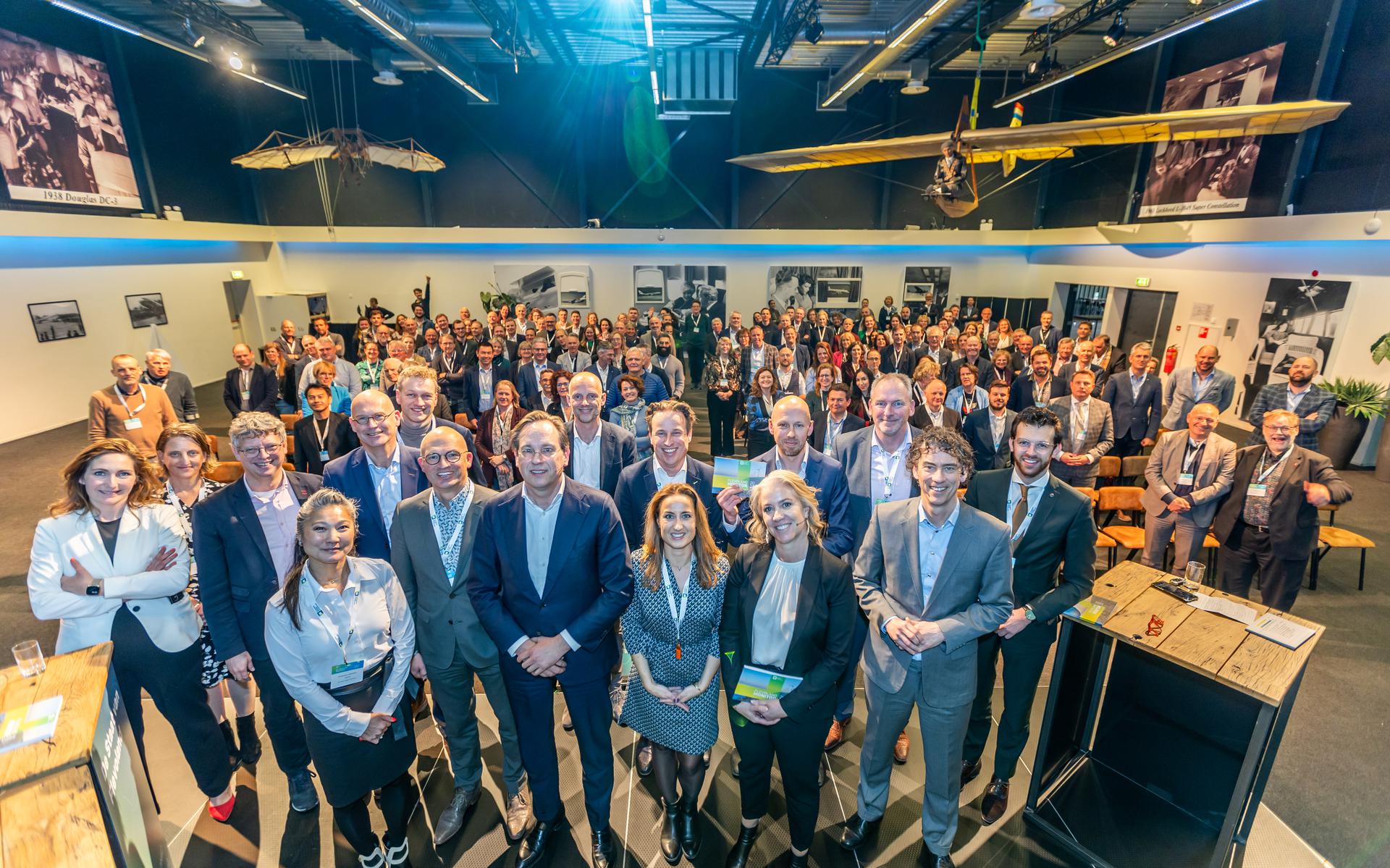Flevoland is in full swing and undergoing strong development. The economic zone is characterized by significant differences in the pace of development of the six municipalities. It is also remarkable that over the past ten years, the size of Flevoland’s economy (Gross Regional Product) has increased faster than that of the Netherlands as a whole. This is stated at the 1st Flevoland Monitor 2023, which was launched on Thursday during De Staat van Flevoland, the knowledge and inspiration event about the Flevoland economy with around 200 participants.
Flevoland Monitor 2023 describes the state and development of the economy in Flevoland based on the data. Friso de Vor, Senior Researcher in Regional Economics at the Technological Knowledge Center at Windesheim University of Applied Sciences, led the research with contributions from Rabobank and the County of Flevoland and commissioned by the Flevoland Economic Council.
space in Flevoland
Femke Rintsma, Chairman of the Economic Council: “The strong development of Flevoland can be explained by the fact that there is room for entrepreneurs. This means that Flevoland has won the gold medal, but at the same time the battle for space is intensifying. Think about housing, nature and energy transmission. This Means we have to be more selective with the space available so that it will be nice to live, work and live in Flevoland for future generations as well.
Strong economic development
Figures from the observatory show it exceeds the national average for many indicators. For example, over the past 10 years, the size of Flevoland’s economy (Gross Regional Product) has increased faster than the economy of the Netherlands as a whole. Employment has grown above average and the development of the number of commercial enterprises has gained momentum. Moreover, Flevoland seems to have dealt relatively well with the shock of the Corona crisis. The Corona crisis hit us less than anywhere else. After that, Flevoland’s economy picked up quickly again, says Windesheim researcher Friso de Vor.
One other conclusion is that Flevoland shows significant differences in orientation and rate of development for each sub-region. While quite a few common transformation issues appear, such as the field of sustainability and labor market development. “Who (recognizes) this diversity must answer these development issues,’ de Voor concludes. This also contributes to the area’s self-awareness: an important condition for making informed choices – now and in the future.
future challenges
Insights from the Flevoland Monitor form a basis that helps determine the direction in which Flevoland wants to develop and what is needed for this. Current (global) developments and a number of major transformation tasks related to sustainability, economic innovation, digitization and labor market development also pose significant challenges for the Flevoland economy. “Flevoland is a young and vibrant province that still has a lot of potential. For major challenges, the need for cross-sector collaboration and connections between knowledge institutes and the business community is becoming even more urgent. It is great to see that today, together with 200 people from the business community, knowledge organizations and governments, we are tackling For future challenges, says Chairman of the Board Fimke Rintsma.
Flevoland Economic Council
The Economic Council is a joint initiative of the business community, (vocational) education, municipalities and the county of Flevoland. The Board of Directors is committed to entrepreneurship and sustainable growth in Flevoland. The Flevoland Monitor can be found for download at www.economicboardflevoland.nl
Here you will find more about the research being conducted by Windesheim University of Applied Sciences for and in the region. https://www.windesheim.nl/onderzoek

“Total coffee specialist. Hardcore reader. Incurable music scholar. Web guru. Freelance troublemaker. Problem solver. Travel trailblazer.”







More Stories
GALA lacks a chapter on e-health
Weird beer can taste really good.
Planets contain much more water than previously thought